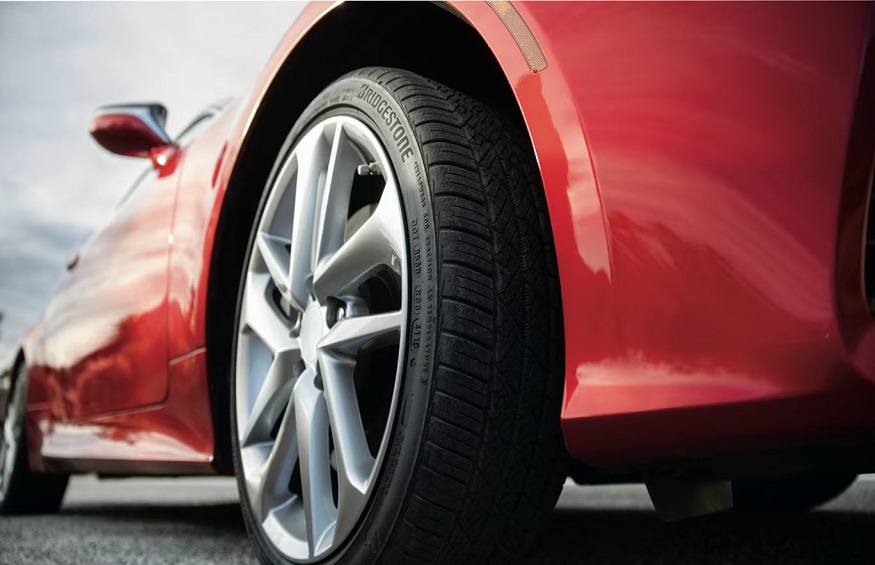The tire is the only link between your vehicle and the road. This is why it is important to determine which tire will best suit your needs. Follow our advice through the different steps.
Which summer tire?
Summer tires are designed for use when temperatures are above 7 degrees Celsius. They provide better grip on dry and wet roads thanks to their softer rubber composition. Summer tires also have wider grooves to channel water away from the tire’s surface. Which helps prevent aquaplaning.
Summer tires can provide better handling and braking performance. Which makes it a good choice for sporty drivers or for high-end vehicles. However, they are more susceptible to cuts and tears due to their softer composition.
It is important to note that summer tires are not designed for use in winter conditions, and can compromise road safety in snowy or icy conditions. It is therefore important to choose the right tires based on the weather conditions and your driving style.
Which winter tire?
Winter tires are designed for use when temperatures are below 7 degrees Celsius and for winter conditions, such as snow, ice and mud.
They have a harder rubber composition that remains flexible at lower temperatures. Thus, they provide better grip on icy and snowy roads. Winter tires also have more aggressive tread patterns to help provide better traction in snow.
Winter tires are designed to provide better safety in winter. However, they may perform worse in terms of handling and braking when used in warmer temperatures. For drivers who live in areas with harsh winters, winter tires are an essential option for safety on the road.
It is important to note that winter tires are not designed for summer use. This is because they can become stiffer and less effective in terms of braking and handling in warmer temperatures. It is therefore important to choose the right tires based on the weather conditions and your driving style.
Which 4 season tire?
All-season tires are designed to provide acceptable performance in both summer and winter. Although they are generally not as good as specialist summer or winter tires. These are made with a rubber composition which is quite flexible. Thus, it provides adequate grip in summer, while remaining firm enough to provide adequate traction in winter.
All-season tires are a practical option for drivers who live in areas where weather conditions vary frequently. Those who don’t need maximum performance in summer or winter. They can also be an economical option for drivers who don’t want to change tires twice a year.
However, it is important to note that all-season tires do not perform as well as specialized summer or winter tires in terms of handling, braking and traction. It is therefore important to choose all-season tires based on your performance and safety needs. As well as your local weather conditions.
Which tire for my car?
Many drivers often face the same question: “Which tire should I choose for my vehicle?” » Know that the best tire for your car depends on several factors, including:
Local weather conditions: If you live in an area with harsh winters, you may want to opt for winter tires for better safety on the road. If you live in an area with hot summers, you may want to opt for summer tires for better performance.
Driving style: If you are a sporty driver, you may want to opt for summer tires for better handling and braking performance. If you primarily drive on country roads, you may want to opt for all-season tires for adequate performance in both summer and winter.
Type of vehicle: The tires recommended for your vehicle are usually listed in the owner’s manual. It is important to follow these recommendations to ensure optimal performance and adequate safety.
It is also important to note that tires should be replaced when they are worn or no longer meet safety standards. It is therefore essential to regularly check the condition of your tires and replace them if necessary.

